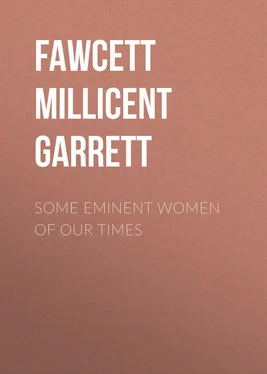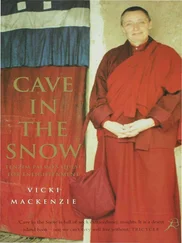Millicent Fawcett - Some Eminent Women of Our Times
Здесь есть возможность читать онлайн «Millicent Fawcett - Some Eminent Women of Our Times» — ознакомительный отрывок электронной книги совершенно бесплатно, а после прочтения отрывка купить полную версию. В некоторых случаях можно слушать аудио, скачать через торрент в формате fb2 и присутствует краткое содержание. Жанр: foreign_antique, foreign_prose, на английском языке. Описание произведения, (предисловие) а так же отзывы посетителей доступны на портале библиотеки ЛибКат.
- Название:Some Eminent Women of Our Times
- Автор:
- Жанр:
- Год:неизвестен
- ISBN:нет данных
- Рейтинг книги:3 / 5. Голосов: 1
-
Избранное:Добавить в избранное
- Отзывы:
-
Ваша оценка:
- 60
- 1
- 2
- 3
- 4
- 5
Some Eminent Women of Our Times: краткое содержание, описание и аннотация
Предлагаем к чтению аннотацию, описание, краткое содержание или предисловие (зависит от того, что написал сам автор книги «Some Eminent Women of Our Times»). Если вы не нашли необходимую информацию о книге — напишите в комментариях, мы постараемся отыскать её.
Some Eminent Women of Our Times — читать онлайн ознакомительный отрывок
Ниже представлен текст книги, разбитый по страницам. Система сохранения места последней прочитанной страницы, позволяет с удобством читать онлайн бесплатно книгу «Some Eminent Women of Our Times», без необходимости каждый раз заново искать на чём Вы остановились. Поставьте закладку, и сможете в любой момент перейти на страницу, на которой закончили чтение.
Интервал:
Закладка:
Like Howard, Mrs. Fry did not confine her efforts to the poor and wretched of her own country. She visited foreign countries in order thoroughly to study various methods of prison work and discipline. On one occasion she found in Paris a congenial task in bringing the force of public opinion to bear on the treatment of children in the Foundling Hospital there. The poor babies were done up in swaddling clothes that were only unwrapped once in twelve hours. There was no healthy screaming in the wards, only a sound that a hearer compared to the faint and pitiful bleating of lambs. A lady who visited the hospital said she never made the round of the spotlessly clean white cots, without finding at least one dead baby! Everything in the hospital was regulated by clockwork; its outward appearance was clean and orderly in the extreme, but the babies died like flies! The Archbishop of Paris was vastly annoyed with Mrs. Fry for pointing out this drawback to the perfect organisation of the institution; but when once the light was let in, improvement followed.
There were many other classes of neglected or unfortunate people whose circumstances were improved by Mrs. Fry’s exertions. The lonely shepherds of Salisbury Plain were provided with a library after she had visited the desolate region where they lived. She also organised a lending library for coastguardsmen and for domestic servants. There was no end to her active exertions for the good of others except that of her life.
She died at Ramsgate in 1845, and was buried at Barking.
Her private life was not without deep sorrows and anxieties. She lost a passionately beloved child in 1815; in 1828 her husband was unfortunate in his business affairs. They suffered from a great diminution of fortune, and were obliged to remove to a smaller house and adopt a less expensive style of living. She did not pretend to any indifference she was far from feeling under these trials; but they were powerless to turn her from the duties which she had marked out for herself. The work which she had undertaken for the good of others probably became, in its turn, her own solace and support in the hour of trial and affliction. In helping others she had unconsciously built up a strong refuge for herself, thus giving a new illustration to the truth of the words: “He that findeth his life shall lose it: and he that loseth his life, for my sake, shall find it.”
II
MARY CARPENTER
“That it may please Thee … to show Thy pity upon all prisoners and captives.”
Mary Carpenter was thirty-eight years old when Mrs. Fry died in 1845. We do not hear, in reading the lives of either, that the two women ever met, or that the elder directly stimulated the activity of the younger. Yet the one most surely prepared the way for the other; their work was upon the same lines, and Miss Carpenter, the Unitarian, of Bristol, was the spiritual heir and successor of Mrs. Fry, the Quaker, of Norwich.
There is, it is true, a contrast in the manner in which the two women approached their work in life. The aim of both was the rescue of what Mary Carpenter called “the perishing and dangerous classes.” But while Mrs. Fry was led, through her efforts on behalf of convicts, to establish schools for them and their children, Mary Carpenter’s first object was the school for neglected children, and through the knowledge gained there she was led to form schemes for the reformation of criminals and for a new system of prison discipline. Mrs. Fry worked through convicts to schools; Mary Carpenter through schools to convicts.
It will not therefore be imagined that there is any want of appreciation of Mrs. Fry when it is said that Mary Carpenter’s labours were more effective, inasmuch as they were directed to the cause of the evil, rather than to its results. By establishing reformatory and industrial schools, and by obtaining, after long years of patient effort, the sanction and support of Parliament for them, she virtually did more than had up to that time ever been done in England, to stop the supply of criminals. Children who were on the brink of crime, and those who had actually fallen into criminal courses, were, through her efforts, snatched away from their evil surroundings, and helped to become respectable and industrious men and women. Before her time, magistrates and judges had no choice, when a child criminal stood convicted before them, but to sentence him to prison, whence he would probably come out hopelessly corrupted and condemned for life to the existence of a beast of prey. She says, in one of her letters, dated 1850: “A Bristol magistrate told me that for twenty years he had felt quite unhappy at going on committing these young culprits. And yet he had done nothing!” The worse than uselessness of prisons for juvenile offenders was a fact that was burnt into Mary Carpenter’s mind and heart by the experience of her life. She was absolutely incapable of recognising the evil and at the same time calmly acquiescing in it. Her magisterial friend is the type of the common run of humanity, who satisfy their consciences by saying, “Very grievous! very wrong!” and who do nothing to remove the grievance and the wrong; she is the type of the knights-errant of humanity, who never see a wrong without assailing it, and endeavouring to remove the causes which produce it.
Mary Carpenter was born at Exeter in 1807, the eldest of five children, several of whom have left their mark on the intellectual and moral history of this century. There was all through her life a great deal of the elder sister – one may almost say, of the mother – in Mary Carpenter. In an early letter her mother speaks of the wonderfully tranquillising influence of dolls on her little Mary. She never shrank from responsibility, and she had a special capacity for protecting love – a capacity that stood her in good stead in reclaiming the little waifs and strays to whom she afterwards devoted herself. Her motherliness comes out in a hundred ways in the story of her life. Her endless patience with the truant and naughty children was such as many a real mother might envy. She was especially proud of the title of “the old mother” which the Indian women, whom she visited towards the close of her life, gave her. In writing to a friend, she once said: “There is a verse in the prophecies, ‘I have given thee children whom thou hast not borne,’ and the motherly love of my heart has been given to many who have never known before a mother’s love.” She adopted a child in 1858 to be a daughter to her, and writes gleefully: “Just think of me with a little girl of my own ! about five years old, ready-made to my hand, without the trouble of marrying – a darling little thing, an orphan,” etc. etc. Her friends spoke of her eager delight in buying the baby’s outfit.
It was her motherliness that made her so successful with the children in the reformatories and industrial schools; moreover, the children believed in her love for them. One little ragged urchin told a clergyman that Miss Carpenter was a lady who gave away all her money for naughty boys, and only kept enough to make herself clean and decent. On one occasion she heard that two of her ex-pupils had “got into trouble,” and were in prison at Winchester. She quickly found an opportunity of visiting them, and one of them exclaimed, directly he saw her, “Oh! Miss Carpenter, I knew you would not desert us!”
Another secret of her power, and also of her elasticity of spirit, was her sense of humour. It was like a silver thread running through her laborious life, saving her from dulness and despondency. In one of her reports, which has to record the return of a runaway, she said: “He came back resembling the prodigal in everything except his repentance!”
The motto which she especially made her own was Dum doceo disco – While I teach, I learn . Her father had a school for boys in Bristol, and Mary and her sister were educated in it. They were among the best of their father’s pupils, one of whom, the Rev. James Martineau, has left a record of the great impression Mary’s learning made upon him. She was indeed very proficient in many branches of knowledge. Her education included Latin, Greek, mathematics, and natural history; and the exactness which her father and the nature of her studies demanded of her, formed a most invaluable training for her after career. For many years the acquisition of knowledge, for its own sake, was the chief joy of her life; but a time came when it ceased to satisfy her. She was rudely awakened from the delightful dreams of a student’s life by a severe visitation of cholera at Bristol in 1832. From this period, and indeed from a special day – that set apart as a fast-day in consequence of the cholera – dates a solemn dedication of herself to the service of her fellow-creatures. She wrote in her journal 31st March 1832, what her resolution was, and concluded: “These things I have written to be a witness against me, if ever I should forget what ought to be the object of all my active exertions in life.” These solemn self-dedications are seldom or never spoken of by those who make them. Records of them are found sometimes in journals long after the hand that has written them is cold. But, either written or unwritten, they are probably the rule rather than the exception on the part of those who devote themselves to the good of others. The world has recently learned that this was the case with Lord Shaftesbury. There is a time when the knight-errant consciously enrols himself a member of the noble band of warriors against wrong and oppression, and takes upon himself his baptismal vow – manfully to fight against sin, the world, and the devil, and to continue Christ’s faithful soldier and servant to his life’s end.
Читать дальшеИнтервал:
Закладка:
Похожие книги на «Some Eminent Women of Our Times»
Представляем Вашему вниманию похожие книги на «Some Eminent Women of Our Times» списком для выбора. Мы отобрали схожую по названию и смыслу литературу в надежде предоставить читателям больше вариантов отыскать новые, интересные, ещё непрочитанные произведения.
Обсуждение, отзывы о книге «Some Eminent Women of Our Times» и просто собственные мнения читателей. Оставьте ваши комментарии, напишите, что Вы думаете о произведении, его смысле или главных героях. Укажите что конкретно понравилось, а что нет, и почему Вы так считаете.




![Корнелл Вулрич - Murder at Mother’s Knee [= Something That Happened in Our House]](/books/398097/kornell-vulrich-murder-at-mother-s-knee-somethin-thumb.webp)







